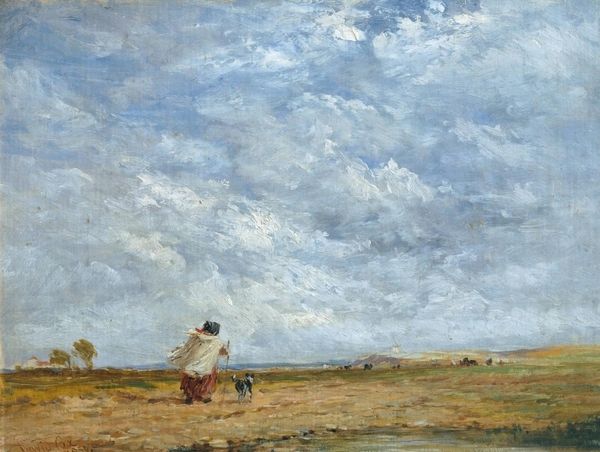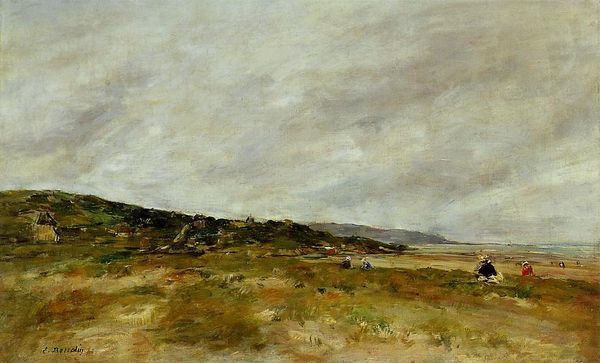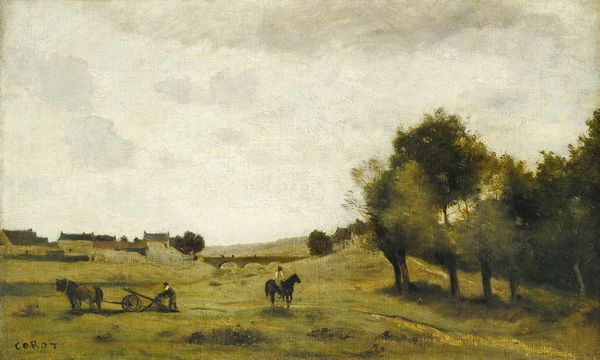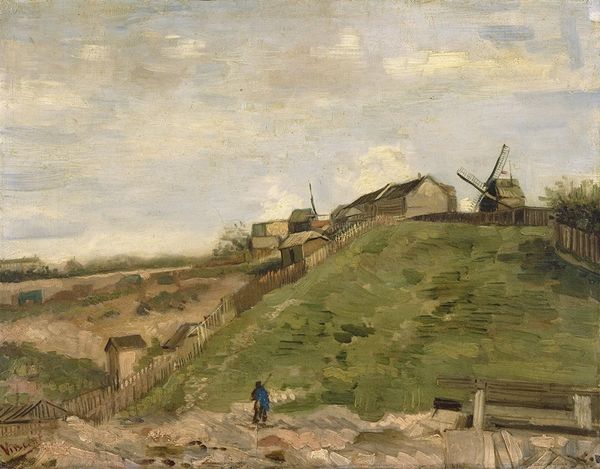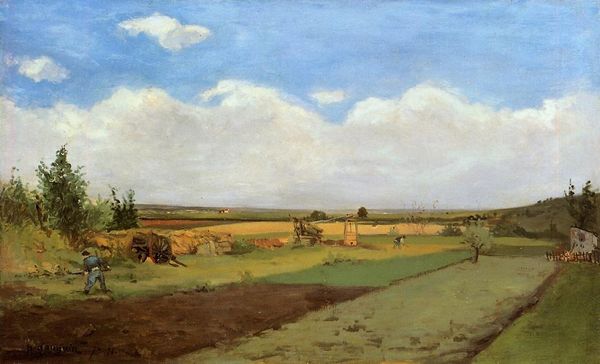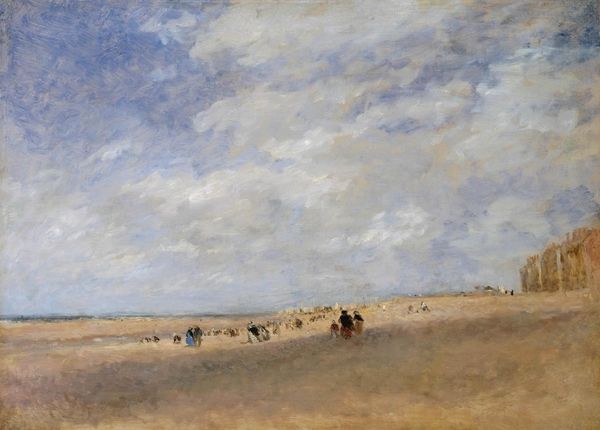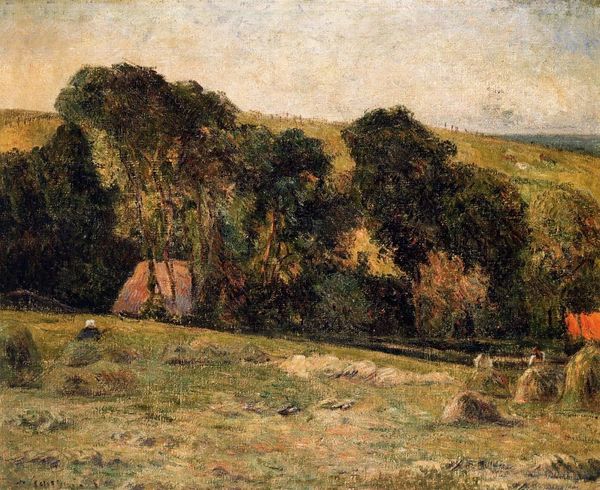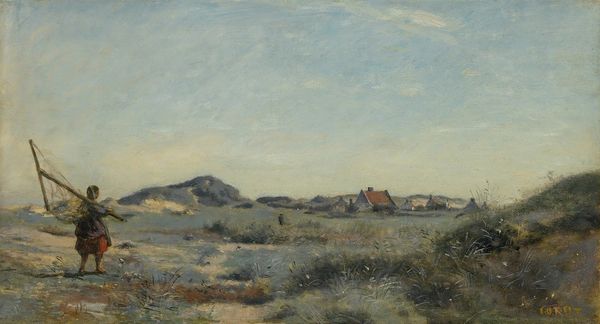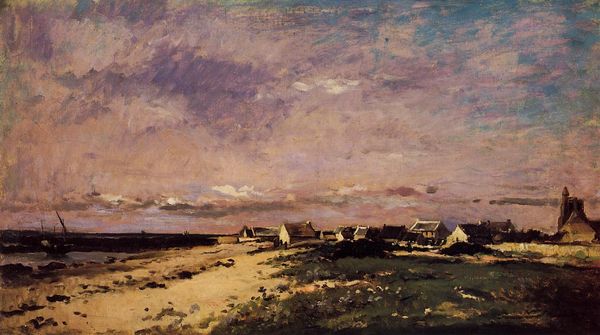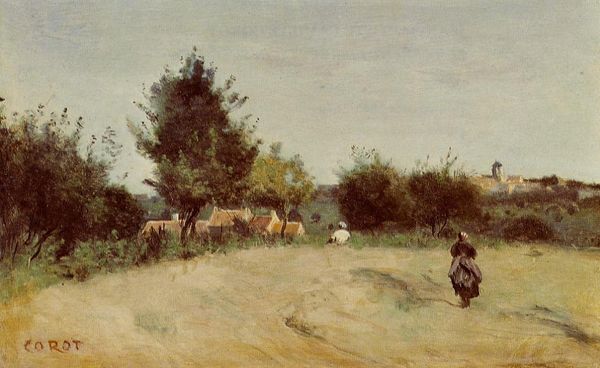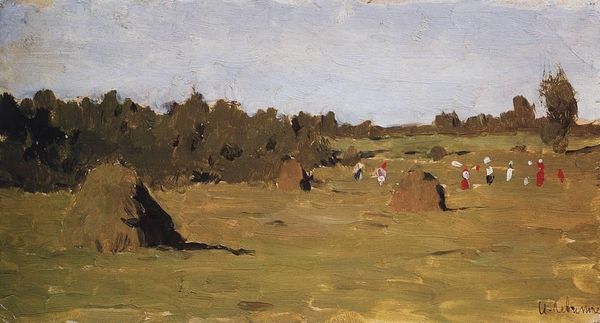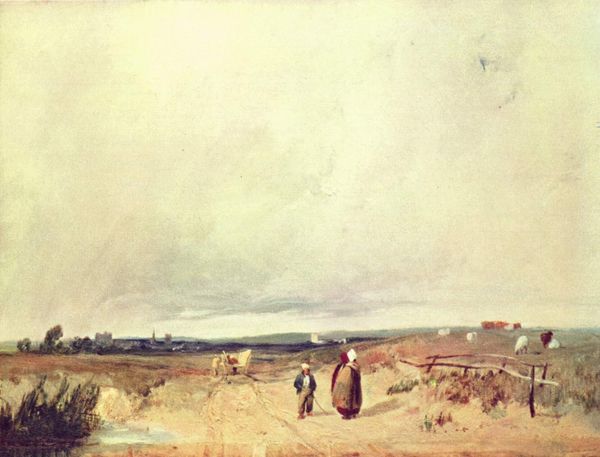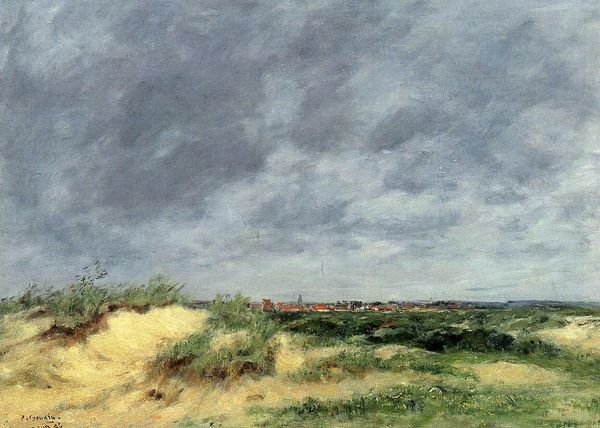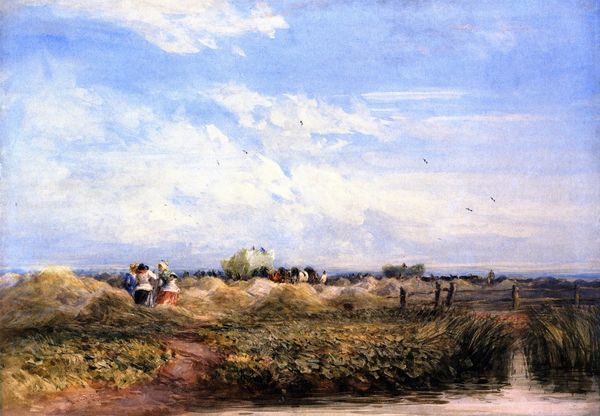
painting, plein-air, oil-paint
#
painting
#
impressionism
#
plein-air
#
oil-paint
#
landscape
#
impressionist landscape
#
figuration
#
oil painting
#
cityscape
#
genre-painting
#
modernism
Copyright: Public domain
Berthe Morisot painted ‘The Little Windmill at Gennevilliers’ with oil on canvas. As an impressionist painter in late 19th century France, Morisot was interested in capturing everyday scenes, in this case in the French countryside just outside of Paris. The location, and Morisot's decision to paint it, points to a key tension of the period. France was rapidly industrializing, and the growth of cities like Paris was coming at the expense of rural areas. This is why the windmill, a symbol of pre-industrial life, is set against a background of smoke-spewing factories. Morisot does not take a clear position on this issue. In the context of French art institutions, the painting can be seen as somewhat progressive. At a time when the male Impressionists were focusing on leisure activities and cityscapes, Morisot turned her attention to the lives of working women. Art historians can look to records and newspaper archives to better understand the cultural context of art like this.
Comments
No comments
Be the first to comment and join the conversation on the ultimate creative platform.
